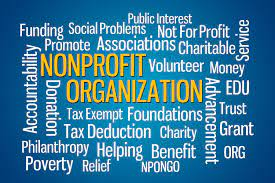Non-Profit

Federal Filing Requirements for Nonprofits
Most charitable nonprofits that are recognized as tax-exempt have an obligation to file an annual information return [1] with the IRS. (There are very few exceptions: church-affiliated organizations and governmental organizations are among those not required to file.) The IRS Form 990 is a public document, so make sure that your nonprofit's board reviews it before it's filed, and that it is completed thoughtfully as well as accurately. Look to the IRS website for guidance on annual reporting [2] of the Form 990. If a nonprofit is incorporated in a state but has never been recognized by the IRS as “tax-exempt,” then it does not have an obligation to file an annual information return with the IRS. Note: Conversely, even if your organization fits one of the few exceptions to mandatory annual filing with the IRS [3], it may still have to file forms annually in the state where it is incorporated, or where it engages in fundraising activities. See information on required state filings [4].
Most small tax-exempt organizations with gross receipts that are normally $50,000 or less must file the IRS form 990-N, known as the "e-postcard". [5]
- FAQs on how to file the IRS Form 990-N. [6]
- If your nonprofit has never filed, call the IRS Exempt Organizations Hotline at 1-877-829-5500 [7] and ask that an account be established for the organization to allow filing of the e-Postcard.
Exceptions to this filing requirement include:
- Organizations that are included in a group return, [8]
- Churches, [9] their integrated auxiliaries, and conventions or associations of churches, and
- Organizations required to file a different return [10]
Background
IRS information returns are known as the "990 series [11]" because there are several forms that use the number 990, including Form 990 [12], Form 990-EZ [13], and for the smallest nonprofits, Form [5]990-N [5].
- FAQS [14] on annual information returns to the IRS.
- Since 2010 tax-exempt organizations have also been required to annually report their unrelated business income [15].
- Which form to file [16]?
- Information on electronic filing [17].
- Tip Sheet: What not to file with your nonprofit’s IRS Form 990 [18]
- Slideshow: Overview of the IRS Form 990 [19]
Federal Filing Deadlines
A charitable nonprofit’s Form 990 must be filed with the IRS on the 15th day of the 5th month [20] after the close of the nonprofit’s fiscal year.
What happens if our nonprofit fails to file?
If a charitable nonprofit fails to file the 990 on time, there can be penalties for late filing [21] [22]and income tax liability [22]. If a nonprofit fails to file for three years in a row, the nonprofit’s tax-exempt status will be automatically revoked. Learn more [16].
- The IRS publishes the list [23] of organizations whose tax-exempt status was automatically revoked because of failure to file a required Form 990, 990-EZ, 990-PF or Form 990-N (e-Postcard) for three consecutive years.
- Use Form 8868 [24] to request an automatic 6-month extension of time to file.
- The 990-N due date cannot be extended, but there is no penalty for submitting it late.
Loss of tax-exempt status: Organizations that lose their tax exempt status are no longer eligible to receive tax-deductible contributions, and may be required to pay corporate income tax. Read about what to do if your nonprofit’s status has been revoked [16].
- Frequently Asked Questions about the automatic revocation [25] explain what taxes will be owed and what forms to file if your nonprofit loses its tax-exemption.
Resources
- What to look for when reviewing the IRS Form 990 before filing [26] (National Council of Nonprofits)
- 990 review checklist for board members [27] (Tate & Tryon)
- Board members' checklist [28]for the Form 990 (BoardSource)
- How to read IRS Form 990 [29] (Nonprofit New York)
- This "decoder" tool [30] can help staff and board members assess the financial health of a nonprofit. (Propel Nonprofits)
- Do you know that you can [31]file the IRS Form 990 electronically? [31] And it's free for organizations with less than $100,000 in gross receipts!
- Video presentations by the IRS about maintaining tax-exempt status ("Stay Exempt [32]") include an overview on the Form 990. [33]
- Read about unrelated business income [15] that may trigger the requirement to file the Form 990-T. (IRS)
- Frequently Asked Questions about annual reporting requirements [14].(IRS)
- Which organizations do NOT have to file [3]an annual information return with the IRS. (IRS)


